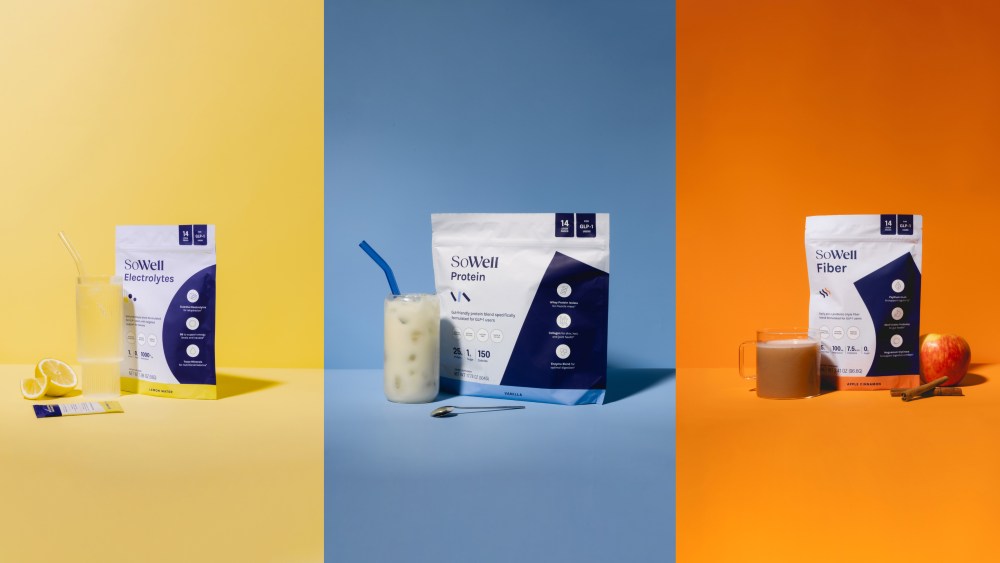The Ozempic craze is shaking up the supplement category.
On Wednesday, SoWell, a supplement brand founded by dual board certified internist and obesity medicine doctor Alexandra Sowa, is launching its GLP-1 Support System for $105. The system includes Electrolytes, $35; Protein, $45, and Fiber, $35, all specifically formulated for GLP-1 users’ needs and their side effects. To start, it will be available direct-to-consumer and will roll out to select retailers in September, Sowa said.
“[The system] was created because I needed products for my patients, and there was nothing out there in the market that was specifically created for the unique needs of GLP-1 users,” she said, adding that she started working on the products about 18 months ago.
Related Articles
Over the past year, many supplement brands and retailers have tapped into the weight-loss drug craze. When berberine, coined nature’s Ozempic, was trendy, several supplement brands launched their own versions. The Vitamin Shoppe recently dedicated a wall to products that support GLP-1 users, with protein, electrolytes, fiber and probiotics meant to address side effects like nausea and muscle loss.
While there’s a lot of buzz around this category, Sowa is aiming to break through the noise by tapping into her experience prescribing GLP-1s over the last decade to create the lineup of products.
“I have been writing [prescriptions for] GLP-1 medications as a part of my holistic medical practice for over 10 years, and I quickly realized there’s only so much I can do in a medical practice,” she said. “SoWell grew out of the desire to help more people and to bring specialty knowledge about metabolic health out into the world.”
The brand’s electrolytes are low carb and low sugar, Sowa said. The product also includes ingredients like vitamin B6, which is said to help with nausea.
“One of the issues about being on GLP-1 medication is that your thirst and your hunger drives are significantly decreased,” said Sowa, adding that the flavors are formulated to be easier on a GLP-1 users’ taste buds.
“Taste buds change on this drug and your brain in relationship to what kind of tastes it wants changes,” she said. “We don’t use anything artificial, and we have used the most gentle, natural flavors because that’s what the GLP-1 user wants.”
While the conversation around Ozempic and weight-loss drugs has boomed, especially after Oprah shared her journey, Sowa said there hasn’t been much talk about how to manage symptoms and support the medications, which is ultimately hindering people’s experiences.
“Up to 70 percent of users stop the medication by a year, and one of the main contributors to stopping the medication is side effects,” she said. “You won’t see the full benefit of this medication if you stop prematurely and without a plan. Our intent with the company is to create a solution to help people feel well, to mitigate side effects and to be the companion to this medication.”
With that in mind, Sowa sees a significant opportunity to continue launching products that support GLP-1 users. “Our goal is to create an ecosystem of products specifically made for GLP-1 users,” she said.
One in eight adult Americans have tried a drug like Ozempic, according to a KFF (Kaiser Family Foundation) health tracking poll. Sowa only expects this number to grow as new studies indicate further benefits and the drugs become more accessible.
“Nearly monthly, there’s a new study coming out that is giving these medications additional indications so treatment for everything from sleep apnea to heart disease prevention, PCOS [and] infertility,” she said. “These medications aren’t going anywhere, and the pipeline of development is quite large.”



